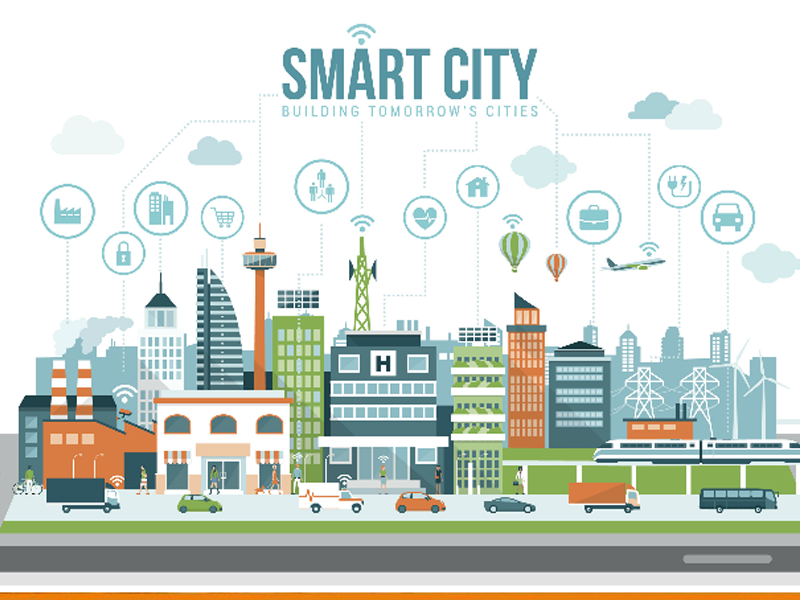Building tomorrow's cities: The engineering marvel of smart infrastructure

- 184
- 0
In the ever-evolving landscape of urbanization, the concept of smart cities is transforming the way we perceive and interact with our environments. Engineered with innovation at its core, smart cities are redefining urban living by integrating cutting-edge technologies into their infrastructure.
At the heart of this transformation lies the indispensable role of engineering, revolutionizing urban landscapes through the convergence of IoT, urban planning, and resource management.
The Foundation of Smart Cities: Urban Planning Reinvented
Engineers are the architects of change, reimagining the urban fabric through meticulous planning and design. Smart cities prioritize efficiency, sustainability, and connectivity. Urban planners collaborate with engineers to optimize space utilization, enhance mobility, and create interconnected networks that facilitate seamless communication between various city systems.
IoT: The Nervous System of Smart Infrastructure
The Internet of Things (IoT) serves as the backbone of smart cities, interconnecting devices, sensors, and infrastructure to collect and analyze data in real-time. Through IoT integration, engineers empower cities with the ability to monitor traffic flow, manage energy consumption, optimize waste management, and ensure public safety.
Redefining Resource Management
Efficient resource management is pivotal for sustainable urban development. Engineers leverage technology to devise solutions that optimize resource utilization. Advanced waste management systems utilizing IoT sensors can track and manage waste collection routes, minimizing environmental impact while enhancing efficiency.
Sustainable Energy Solutions
Smart cities prioritize clean and renewable energy sources to meet their power needs. Engineers are instrumental in implementing sustainable energy solutions like solar panels, wind turbines, and energy-efficient systems. These initiatives not only reduce carbon footprints but also pave the way for energy independence.
Connectivity and Accessibility
Engineers play a critical role in creating connected ecosystems that enhance the quality of life for urban dwellers. From smart grids and autonomous vehicles to high-speed internet accessibility, engineers enable seamless connectivity and accessibility, fostering a more connected and informed community.
The Path Ahead: Challenges and Opportunities
While the vision of smart cities is promising, challenges persist. Issues related to data security, privacy, and infrastructure scalability need meticulous engineering solutions. Balancing technological innovation with social equity and inclusivity remains a constant challenge that engineers aim to address.
In conclusion, the metamorphosis of cities into smart, sustainable, and efficient ecosystems is a testament to the prowess of engineering. The marriage of IoT, urban planning, and resource management has empowered engineers to shape the cities of tomorrow. With continuous innovation and collaborative efforts, engineers are not merely building infrastructure; they are sculpting environments that harmonize technology, sustainability, and human-centric design in the pursuit of a brighter urban future.
Published in The Daily National Courier, January, 09 2024
Like Business on Facebook, follow @DailyNCourier on Twitter to stay informed and join in the conversation.

















































